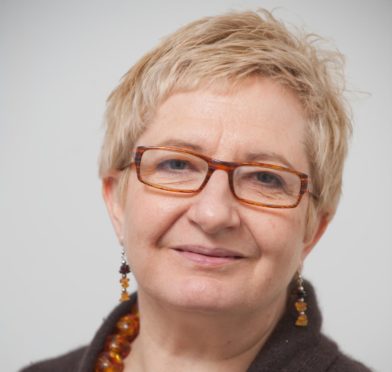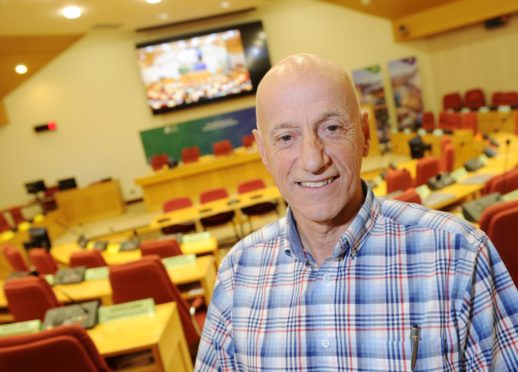Parents, teachers and education bosses have been having their say on the Scottish Qualification Authority’s (SQA) assessment appeals process after it emerged grades could be moved up or down.
On Wednesday, education secretary Shirley-Anne Somerville delivered the long-awaited details on how students can appeal results from this year’s Alternative Certification Model.
Parents, teachers and students had been expecting the announcement in May but details were continually delayed.
MSPs voiced fears that student grades might go down, depending on what evidence is found during their appeal – and labelled that a “perverse gamble”.
But while some groups agreed, others are latching on to the fact that students can launch their appeals for free and that processing the appeals won’t add to the already substantial workload of teachers.
What did we learn?
During her address to Scottish Parliament, Ms Somerville outlined the appeals process for this year’s Alternative Certification Model (ACM). She said that the process will allow students to have a direct line of appeal for free based on the criteria.
But launching an appeal doesn’t guarantee grades will improve.
When fellow MSPs raised concerns over the possibility that student grades could go down after an appeal, Ms Somerville said that such cases are typically rare and will be subject to even stricter quality control.
She said: “In 2017, eight people were downgraded from 13,998 (appeals). In appeals in 2018, it was seven people from 30,063 and in 2019 it was one person from 11,138.
“Of course it is an exceptionally rare process, but even if it is considered we will ensure that the downgrading decision is also further reviewed within the SQA.”
How are parents reacting?
However, there are still concerns about how the possibility of lower grades will impact the appeals process, and how accessible it will be for students.
Eileen Prior, executive director of Connect, an independent charitable group of parents, teachers and students, said that the appeals process might create hurdles too high for children to tackle on their own.
‘The rights of young people to appeal directly are very restricted, involving legal knowledge for both parents and their young people. Will there be advice and support for young people and their families with this?
Ms Prior worries that students will be overwhelmed and underserved by the appeals process.
She said: “We are still asking, on behalf of young people and their parents, about how personal circumstances will be taken into account in the alternative certification model and in the appeals system. How will young people be treated fairly in these most difficult circumstances?
“We have campaigned throughout for a ‘no detriment’ approach – for appeals to not lead to lower grades. This is a deliberate attempt to reduce the numbers of appeals.
“Young people may be feeling desperate and an appeal is their only course of action. They cannot be penalised with a lower grade for exercising this right. That’s like saying: these are your rights, but you may be treated more harshly as a result of exercising your rights.”
Education chief backs plan laid out by government
Highland Council called the appeals process a positive for students who want to make sure their results are fair.
Councillor John Finlayson, chair of the education committee, said: “Our teaching staff, senior managers in schools and Highland Council officers have been working hard to make sure that this year’s assessment of skills, knowledge and understanding is in line with the guidance issued by SQA, so that the grades submitted to SQA correctly reflect young people’s learning.
“The announcement helps us to be sure that there is a fair appeals process for young people, and SQA will be writing to all candidates with more information about that process.”
Teaching union welcomes appeals process and praises the class of 2021
Although teachers will remain the first line of contact for their students, they won’t shoulder the burden of processing appeals.
The boss of the country’s biggest teaching union has welcomed the appeals process that has been set out by the qualifications body and local reps are happy teachers will not be part of it.
Ron Constable, secretary for EIS Aberdeen, welcomed the announcement from the education secretary.
“I think it is important for universities, colleges and employers to recognise how hard it has been for children this year.”
Ron Constable, local secretary for the EIS in Aberdeen.
He also praised youngsters who are having to deal with huge changes to the assessment system during the pandemic.
Mr Constable said: “The responsibility for this lies with SQA rather than teachers which is a positive.
“It is good the pressure has been taken off teachers because they’ve had a phenomenal amount of work to do with assessments.
“I’m a wee bit worried about the timeline for this but we will wait and see how it works out.
“I think it is important for universities, colleges and employers to recognise how hard it has been for children this year.
“It has been a real challenge and the kids have come through all of this with flying colours.”
Read coverage on the subject from our politics team: How opposition politicians labelled appeals system a “perverse gamble”.

